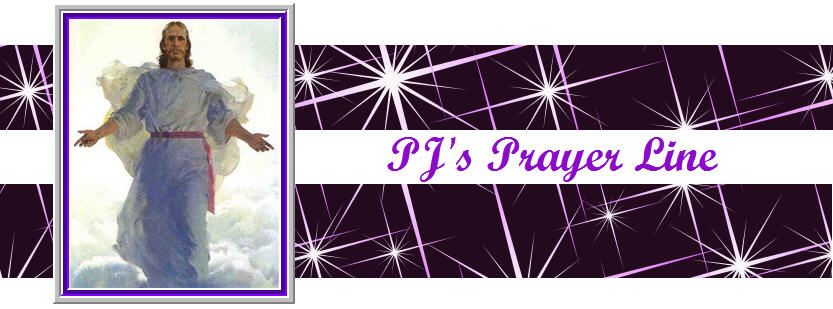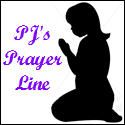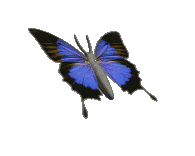 Good Evening to All!
Good Evening to All!
As the coming of Christ
gets closer, I feel compelled to get as much knowledge and
recollection out as possible. Therefore, I will be doing a series of
these, starting in Acts, and following through Revelation. This is
in hope that it will entice people to dig into their Bibles, and
search for the truth. While it is true that “we know not the day
nor the hour that Christ will return for His people”, He also tells
us to watch for the signs. They are all happening right now, in this
day and time. Be aware. Read, research and be ready!
1. The two candidates were Joseph Barsabbas and Matthias. Matthias won. What did he win? (Acts 1:26)
a. A position as one of the twelve disciples, replacing Judas.
b. The right to record the memoirs of the apostles
c. The role of head deacon in the early church
d. The early church's first table tennis championship
2. Who was "walking, leaping and praising God" in Solomon's Colonnade?
(Acts 3:8)
a. Peter
b. The lame man healed by Peter and John
c. David
d. Rhoda
3. The authorities warned Peter and John not to preach about Jesus. What happened next? (Acts 4)
a. They prayed with other Christians
b. The house where the Christians met was shaken.
d. All of the above.
4. What physical problem did Saul have after his experience on the Damascus Road? (Acts 9:8)
a. He limped.
b. He couldn't speak.
c. He couldn't see.
d. He looked just like his twin brother.
5. After Saul's conversion, the Jewish authorities in Damascus were out to kill him. How did he escape the city? (Acts 9:25)
a. In disguise, at night.
b. In a cart carrying pigs to market
c. In broad daylight
d. In a basket, over the city wall.
6. A Christian woman named Tabitha was "always doing kind things for others and helping the poor" (Acts 9:36). She'd even make coats and clothing for people. What was her Greek name?
a. Alexandra
b. Priscilla
c. Dorcas
d. Jezebel
7. Where was Peter when messengers from Cornelius the centurion arrived at his house? (Acts 10:9)
a. Meditating on the roof
b. Resting by the seaside
c. Preaching in the temple
d. Fighting the Visigoths
8. Which apostle was first to be killed for his faith? (Acts 12:2)
a. James
b. John
c. Luke
d. Peter
9.
In the town of Lystra, some out-of-towners stirred up trouble and
stoned Paul. He was dragged out of the city, given up for dead. Then
what happened? (Acts 14:20)
a. The believers mourned for three weeks after sending his body back to Tarsus.
b. Barnabas went on to Cyprus with John Mark.
c. Paul got up and went back into the city.
d. All of the above
 10.
Acts 15 records a council meeting where the Jerusalem church leaders met
with missionaries Barnabas and Paul to discuss church policy. What was
the main issue? (Acts 15:5)
10.
Acts 15 records a council meeting where the Jerusalem church leaders met
with missionaries Barnabas and Paul to discuss church policy. What was
the main issue? (Acts 15:5)
a. Whether they should continue to collect money from the churches they visited.
b. Whether Gentile believers should be required to convert to Judaism
c. Whether they should take the gospel west of Rome
d. Whether to reprimand the youth minister for his crazy antics.
11. Finish this verse: "For we are God's workmanship, created in Christ Jesus...." (Eph. 2:10 NIV)
a. to do good works, which God prepared in advance for us to do.
b. for his pleasure, which we seek daily.
c. to praise him and fail him, to cling to his grace.
d. to display the glories of his creative spirit. (15)
12. According to 1 Thessalonians 4:15, what sound will accompany the Lord's return? (16)
a. A commanding shout
b. The call of the archangel
c. The trumpet call of God
d. All of the above
13. According to 1 Timothy 2:8, who should "pray with holy hands lifted up to God, free from anger and controversy"? (17)
a. Men
b. Women
c. Children
d. Pro wrestlers
14. Paul told Timothy to tell certain people "not to be proud and not to trust in their money" (1 Tim. 6:17). Who was that message for? (18)
a. The Galatians
b. The false teachers
c. Those who are rich in this world
d. Fashion models
15. God has not given us a spirit of timidity, but of what? (2 Tim. 1:7) (19)
a. Power
b. Love
c. Self-discipline
d. All of the above


















No comments:
Post a Comment